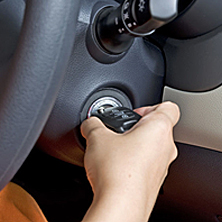How Spark Plugs Work
As car engines grow increasingly complex and computerized, spark plugs are among the few remaining mechanical elements that non-mechanics can still understand. These hearty little plugs are essential to the function of any gasoline-fueled engine, and they often require some adjustment or replacement. While it is clear to many people that spark plugs provide the spark that burns the fuel inside a car engine, it is helpful to know not only what the sparks plugs do, but how they do it and what they are made of.



